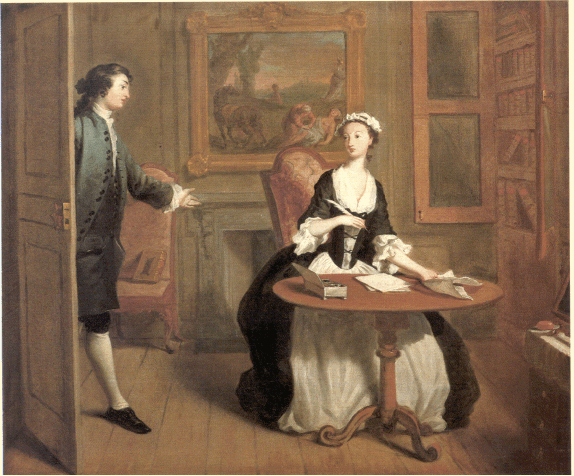
Female Authorial Shame

In my focus on studying “long eighteenth-century” women writers, especially my favorite, Frances Burney, but also Haywood, Behn, etc., and also later writers such as Radcliffe and Austen, prominent reads on my list have to this point included Armstrong’s Desire and Domestic Fiction others written after this influential work, which argues that during the eighteenth century and throughout the development of the novel from the early, epistolary format to the genre as we know it today, women writers were not supposed to write about politics but nonetheless did, by writing about the domestic in coded ways. The courtship plot, then, was a way for women writers to write about politics under the guise of domestic concerns of “mere” marriage. Further, during this time the novel was decried as inferior to poetry. Reading Katherine Philips’s 1664 poetry, then, provides an important context for me as I think about the issues of the domestic (private) versus the political (public), and the expectations for women to reside in the domestic (private) and men, in the political (public), segregated to their separate realms.
Philips’s “Upon the Double Murder of King Charles I, in Answer to a Libellous Copy of Rhymes Made by Vavasor Powell,” and the subsequent poem she wrote to her husband regarding that poem (he was being blackmailed/threatened with its release by a political opponent), “To Antenor, on a Paper of Mine which J. Jones Threatens to Publish to Prejudice him,” reveal a woman writing explicitly about politics in the late seventeenth-century. Though Philips had to, like other women poets during this time (see Pulter’s “The Author to her Book”), eventually decry her own writing, she is not quite so self-deprecating as Pulter here. She compares her poem to “Eve’s rebellion” and contrasts her husband with Adam, because he did not “forbidden fruit … taste” (lines 11-12). She refers to “Upon the Double Muder of King Charles I,” as well, as her “follies” and as an ink stain when she writes that her “blood should justly wash [her ink stain] off again” (lines 23-24). She calls her poem “so dull a rhyme.” This is not nearly so violent as Pulter’s criticism of her book, in her poem written after its release, but it is a similar exercise in authorial humility. Here, Philips does not liken the poem to a child nor does she personify it, ending by stating, as Pulter, that she required money so she released it; she is responding to the threat of the poem’s release. She is not worried about her own reputation here, but rather, her husband’s. She fears the political implications of the poem’s release for her politician husband, decries the fact that she, his wife, could cause him political harm, but is not so focused on humility due to the feminine virtue of keeping quiet, relegated to the domestic. Philips is disowning what the poem said, the content of the poem, not the act of writing as a woman itself.
Works Cited
Women Poets of the English Civil War, pp. 177-198

